The Project management professional (PMP) course is designed by project management experts, for project management professionals covering the widely used Predictive, Agile and Hybrid approaches to project management. It equips participants with skills to effectively initiate, plan, execute, monitor, and control and close projects according to best practices and in a manner that supports organizational change. The Project Management Professional (PMP) course content below is according to the latest PMP Course outline (ECO) released in January 2023 by the Project Management Institute:
Lesson 1: Business Environment
- Define “project” and how it relates to the larger discussion of “project management.”
- Discuss the different types of organizational structures and how they relate to your project’s management.
- Discuss the principles of project management.
- Discuss the principles of agile and how they relate to your project’s management.
- Discuss strategic alignment and its elements.
- Explain the impact of business factors on strategic alignment.
- Determine how projects align with business strategy.
- Identify the types of business value.
- Describe change management theory and its relation to organizational change.
- Define and discuss project governance.
- Explain project compliance and its importance.
Lesson 2: Starting a Project
- Define and discuss stakeholders and the most effective ways to communicate with them.
- Explain the best ways to form a team.
- Describe how to build the most effective understanding of a project and how doing so relates to executing a project successfully.
- Explain how predictive and adaptive project life cycles work; explain what a hybrid development approach is.
- Decide which kind of development approach or life cycle is best suited for work.
Lesson 3: Project Planning
- Explain the importance of a project management plan.
- Provide an overview of scope planning in both predictive projects and adaptive environments.
- Provide an overview of schedule planning in both predictive projects and adaptive environments.
- Discuss what resources are and how they are involved in planning for the procurement of external resources for a project.
- Determine the budgeting structure/method for a project
- Explain the importance of tailoring a budget.
- Identify strategies for dealing with risks and risk planning.
- Assemble a toolkit of possible responses to risks.
- Define quality and how it relates to the outcomes and deliveries for a project.
- Discuss the importance of integrating project management plans into your change management process.
Lesson 4: Leading Project Teams
- Discuss the guidelines for developing leadership competencies and skills.
- Address leadership styles, and the components of leading a successful team, either in person or virtually.
- Describe artifacts and the strategies for their use.
- Identify the characteristics and core functions of empowered teams.
- Explain strategies and forms of communication for collaborating in a project team environment.
- Learn the value of training, coaching, and mentoring for a team.
- Explain the importance of conflict management.
- Discuss the causes and levels of conflict and their outcomes.
Lesson 5: Supporting Project Team Performance
- Explain the various methods for implementing improvement.
- Explain the various methods for performance measurement.
- Compare these methods with a focus on communication and accountability.
- Identify the methods for implementing a project and the issues and impediments that arise during a project.
- Describe the methods for implementing changes during a project.
Lesson 6: Closing the Project/Phase
- Define the reasons and activities related to the closure of a phase or a project
- Explain the benefits gained from a project or phase, and how they are managed, sustained, etc.
- Examine the reasons for knowledge transfers and how they relate to the closure of a phase or project.
May Intake
Don't miss out!
Don't miss out!
Share on:
